KEYNOTE TALKS
Multi-static and Multi-dimensional techniques for passive radar systems
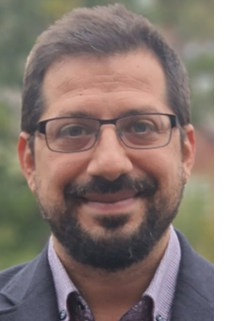
Prof. Michail Antoniou
Michail Antoniou SMIEEE, FIET, received his BEng (Hons) in Communications Engineering in 2003 and his PhD in Radar Systems in 2007, both from the University of Birmingham, UK. He is now Professor in RF Sensing Systems at the University of Birmingham, the Deputy Head of its Microwave Integrated Systems Laboratory (MISL), and the Qinetiq\Royal Academy of Engineering Research Chair in Distributed and Connected RF Sensing. His research interests include distributed radar sensing and imaging, multi-dimensional radar imaging, cognitive radar systems and AI for radar. He has some 160 publications in these areas and 2 book chapters, and he has previously held various editorial roles for IEEE, IET and MDPI journals.
Signal Processing and Machine Learning on Graphs: A Filter based Perspective.
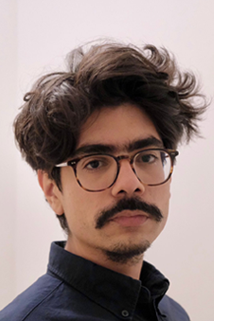 Ph.D. Mario Coutiño
Ph.D. Mario Coutiño
Mario Coutiño received his M.Sc. and Ph.D. degree (cum laude) in electrical engineering from the Delft University of Technology, Delft, The Netherlands, in July 2016 and April 2021, respectively. Since 2020, he has been a Signal Processing and Machine Learning Researcher with the Netherlands Organisation for Applied Scientific Research (TNO) in the fields of Radar and Sonar sensing. He has held temporally positions with Thales Netherlands, during 2015, and Bang & Olufsen, during 2016. He was Visiting Researcher with RIKEN AIP and with the Digital Technological Center, University of Minnesota, in 2018 and 2019, respectively. His research interests include array and graph signal processing , optimization theory, machine learning and sensing technology. He was recipient of the CONACYT excellence scholarship, of the Best Student Paper Award at IEEE CAMSAP 2017, of the EDA RTI Papers Award 2023, of the NATO SET 318 Best Paper Award and of the IEEE Signal Processing Society Best PhD Dissertation Award 2023.
Selected time series and their spectra in geosciences
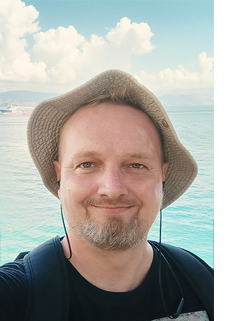
dr Maciej J. Mendecki
Natural processes often generate time series data across various phenomena. One common type of time series, which can be effectively analyzed through spectral techniques, is ground motion evoked by both natural and anthropogenic events. The characteristics of these events may vary, encompassing waveforms produced by seismic events or ambient seismic noise. In seismology, spectral analysis can be used to filter waveforms for clear signals, identify dominant frequencies that reflect focal characteristics, and even recognize near-surface site effects influenced by local geology. Beyond seismology, time series analysis has applications across other areas of geoscience, where patterns may be less immediately apparent.
Quantum Kernel Methods
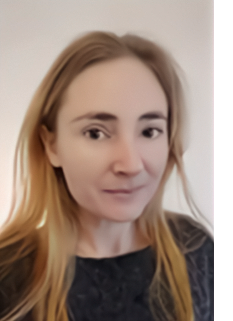 Ph.D. Urszula Libal
Ph.D. Urszula Libal
Ph.D. Urszula Libal is an assistant professor at the Faculty of Electronics, Photonics and Microsystems at Wroclaw University of Science and Technology, Poland. She is a member of IEEE Signal Processing Society. She received her M.Sc. in Mathematics in 2006 from the University of Wroclaw, Poland, and her M.Eng. in Electronics and Telecommunications in 2009 from Wroclaw University of Technology, Poland. She completed her Ph.D. with distinction in 2015 at Wroclaw University of Technology, Poland, with a dissertation focused on wavelet multiresolution analysis for statistical pattern recognition of signals. Dr. Libal is an alumna of the TOP 500 Innovator Program at Stanford University, Stanford, CA, USA. From 2019 to 2020, she served as a postdoctoral fellow in the Division of Decision and Control Systems at the KTH Royal Institute of Technology, Stockholm, Sweden, conducting research on tensor decomposition of Volterra series kernels. Her research interests include signal processing and machine learning with applications in smart beekeeping and radar systems.
Quantum Kernel Methods
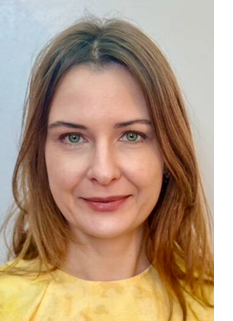 Ph.D. Agnieszka Wielgus
Ph.D. Agnieszka Wielgus
Ph.D. Agnieszka Wielgus is an assistant professor at the Faculty of Electronics, Photonics and Microsystems at Wroclaw University of Science and Technology, Poland. She is a member of IEEE Signal Processing Society. She received her M.Eng. in Control Theory and Robotics in 2008 from Wroclaw University of Technology, Poland. She earned her Ph.D. with distinction in Computer Engineering from Wrocław University of Technology in 2014 with a dissertation focused on scheduling problems and their computational complexity. Her primary research endeavors are centered on optimization techniques and operational research in signal processing, alongside the analysis of non-stationary and non-linear signals. Dr. She has served as an executor in National Science Centre (NCN) projects focused onoperational research methods. Currently, she leads the NATO Chief Scientists Grant titled "Modern operational research methods for airspace surveillance."
© 2024 Politechnika Warszawska, ISE, Wydział Elektroniki i Technik Informacyjnych, ul. Nowowiejska 15/19, 00-665 Warszawa






